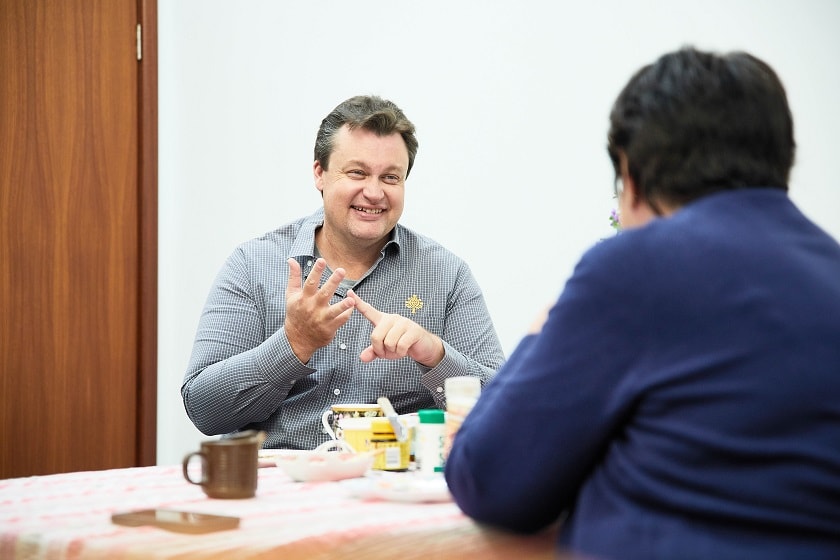The uncertainty and change that we continue to experience due to the virus is affecting people's health, finances and day-to-day routines, which can lead to feelings of worry, fear and stress.
Our Clinical Psychologist Anne Fraser shares seven wellbeing tips to help support your mental health during this time.
Routine
Having a routine can help provide emotional stability during times of uncertainty - it can give a sense of control and predictability. Try and establish a routine that you can stick to. Write a schedule that is varied and includes a balance of work, fun, hobbies, connecting with others and time for exercise.
However, be careful about putting too much into your schedule for each day so you don’t start to feel overwhelmed. If you can, go to bed and wake up at the same time each day.
If you’re working from home, try and find a healthy balance between your work and home life. Consider setting some boundaries such as allocating specific work hours each day and turning emails off outside these times. Ensure you have a designated workspace and take regular breaks.
Go green
Get outside at least once a day for some green time, or if you can’t get out bring nature inside as this can help too. Think about adding indoor plants, pictures and sounds that help connect you with nature. Being in touch with nature can help bring a sense of calm and gratitude for the positive things in your life.
Eat well and exercise
Look after your mental and physical wellbeing by staying hydrated, eating well and exercising daily.
Stock your fridge with healthy foods, limit junk food and stick to the recommended daily allowances for alcohol. Challenge yourself and those you live with to create new meals, and if you have children get them involved too.
During times of restrictions, when access to gyms and other recreational facilities is limited, remember most of the health benefits from exercise come from walking. Walking at a moderate intensity for just ten minutes can get your heart rate up.
You could also try something new like yoga or an at-home HIT workout, there are lots of online workouts to try. Something is always better than nothing.
Reflect and reconnect
Take the time to step back and reflect on what you're grateful for and what's really important to you. Reconnect with old hobbies and interests. Learn to play a new instrument or learn a new language.
Set up virtual play dates for your children, or try a virtual cooking, dancing or book club for yourself.
Connecting with others is important especially at these times. Plan online or phone catch ups with friends and family. It might even be fun for those on their own to share a meal virtually with friends.
Consider your kids
During times of change and uncertainty children can also feel unsettled and worried. This is because they pick up on the emotions of those around them. Children, in particular those who are young, find it hard to communicate how they feel and instead they may express themselves through play and drawings.
Take time to sit with them, talk about their emotions in a calm manner and allow them to feel what they feel. Normalise their emotions and let them know you understand how they are feeling, and then redirect them to another activity.
Set up positive boundaries such as limiting their exposure to TV/social media to reduce the chance of overwhelming them with bad news. Reassure them that you're here to help and support them, and you'll get through this as a family.
Set aside ‘worry time’
If you're finding that you are worrying too much, learn how to park your worries by setting a period of 15 to 20 minutes for ‘worry time’ each day. If a worry occurs to you during the day, jot it down so you don’t forget it, park it, and return to it at ‘worry time’.
Use this time period to focus on your worries and what's going on while simultaneously checking the facts and the reality of your concerns. If you can fix some worries plan what to do during the time you have set aside. There may still be worries on your list but they will have to wait until the next day’s ‘worry time’.
Seek help
If you or someone you know is experiencing significant changes in emotional wellbeing, or is showing signs of anxiety or depression, to the point that it's impacting their ability to do the things they would normally do, it's important that you or they seek help.
A good place to start is by having a chat with your GP. There are lots of services offering telehealth options at the moment, which will allow you to get support from the comfort of your own home.
St John of God Mental Wellbeing Services provides free and confidential support via telehealth or in-person.








